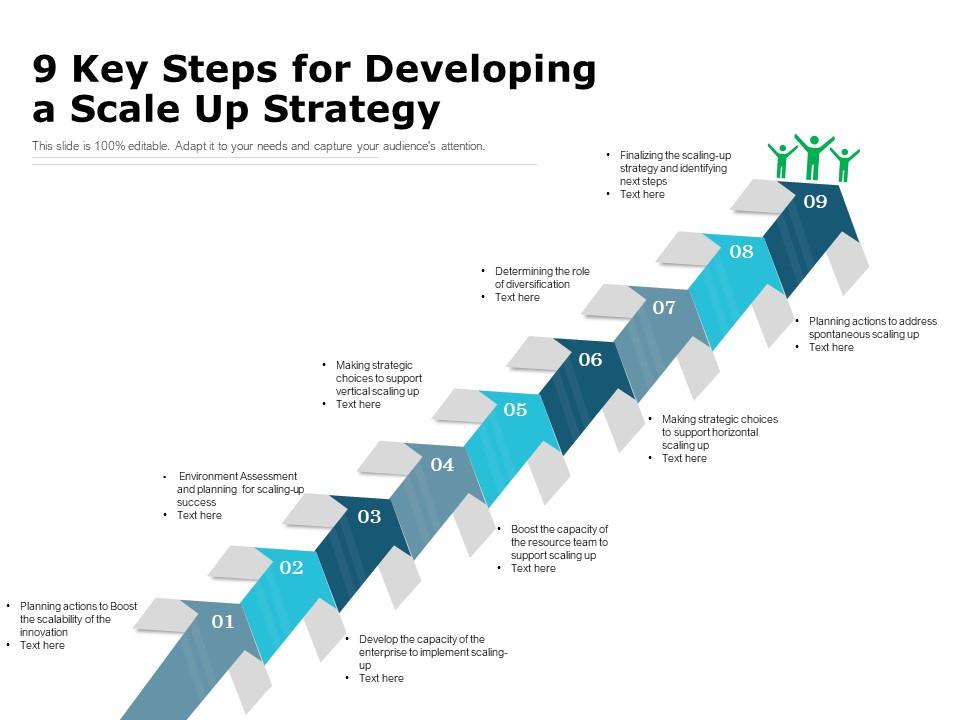
Propel Your Business to New Heights: Scaling Up Strategies
In the competitive business landscape, the ability to scale up effectively is a key determinant of long-term success. Explore practical strategies that can propel your business to new heights and position it for sustained growth.
Understanding the Need for Scaling Up
Before delving into strategies, it’s crucial to understand why scaling up is essential. Scaling allows your business to handle increased demand, expand market reach, and capitalize on new opportunities. Recognizing the need for growth and scalability is the first step in developing effective scaling up strategies.
Optimizing Operational Efficiency
Efficient operations are the backbone of a scalable business. Streamline processes, identify bottlenecks, and implement automation where possible. Optimizing operational efficiency not only improves productivity but also lays a foundation for seamless scaling as the business grows.
Investing in Technology
In the digital age, technology plays a pivotal role in scaling up. Invest in robust technology solutions that support business operations, enhance customer experiences, and provide valuable insights. From advanced software systems to data analytics tools, technology is a key enabler for sustainable growth.
Building a High-Performance Team
Scaling up is not just about expanding the business; it’s about cultivating a high-performance team. Invest in recruiting, training, and retaining top talent. A skilled and motivated team is essential for navigating the challenges that come with growth and ensuring the success of scaling efforts.
Diversifying Revenue Streams
Relying on a single revenue stream can be risky. Explore opportunities for diversification by introducing new products or services, targeting different customer segments, or entering new markets. Diversifying revenue streams not only mitigates risks but also opens up avenues for scalable growth.
Strategic Partnerships and Alliances
Forming strategic partnerships and alliances can be a game-changer when scaling up. Identify potential collaborators, suppliers, or complementary businesses. Partnerships can provide access to new markets, shared resources, and synergies that contribute to accelerated growth.
Customer-Centric Approach
A customer-centric approach is vital for scaling up successfully. Understand your customers’ evolving needs, gather feedback, and tailor your products or services accordingly. A satisfied customer base not only fuels growth through repeat business but also serves as a powerful marketing tool through positive word-of-mouth.
Financial Planning and Management
Scaling up requires a solid financial foundation. Develop comprehensive financial plans, assess funding options, and ensure effective financial management. Adequate capital is necessary for investing in technology, expanding operations, and weathering any challenges that may arise during the scaling process.
Scalable Marketing Strategies
Adapt your marketing strategies to support scalable growth. Leverage digital marketing, social media, and content strategies to reach a wider audience. Invest in marketing channels that provide measurable results and allow for adjustments as your business expands.
Continuous Monitoring and Adaptation
Scaling up is an ongoing process that requires continuous monitoring and adaptation. Regularly assess the effectiveness of your strategies, measure key performance indicators, and be prepared to make adjustments. Flexibility and agility are critical for successfully navigating the complexities of growth.
In conclusion, scaling up is not a one-size-fits-all endeavor. It requires a strategic and holistic approach that encompasses operations, technology, team, and customer focus. By implementing these scaling up strategies, your business can propel itself to new heights and thrive in a competitive business environment.
For more insights on Scaling Up Strategies, visit homecontractorzs.info. Discover tools and resources to guide your business through successful scaling initiatives.
